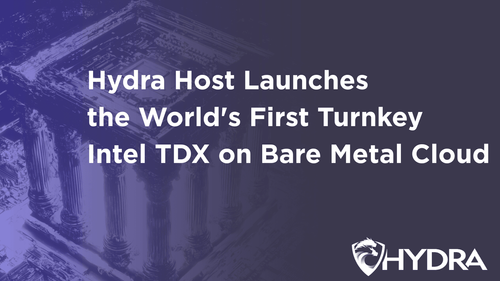Advancing American Interests with GPU Exports to the Middle East
Recent chip export restrictions designed to deny advanced hardware to the Chinese Communist Party have swept up several other countries in the process. Most notable are the Gulf States of the Middle East- such as the UAE, Saudi Arabia, and Kuwait.
With the rapid rise in popularity of Deepseek (almost certainly trained on restricted H100s), these export rules are facing renewed scrutiny. Enforcing direct prohibitions on sales to China is simple, but preventing subsequent resale through other jurisdictions is far more complex. To address this, the heavy-handed approach used by the previous Biden administration severely limited exports to many partner and neutral countries- a policy that remains leaky and ultimately harms U.S. interests. To understand why requires asking a simple question.
Do we want the rest of the world to buy American or Chinese?
Our restrictive export measures effectively subsidize the Chinese chip industry by knocking American competition out of key markets and pushing neutral or friendly nations deeper into China’s technological and economic orbit. It’s a case of cutting off our nose to spite our face.
Fortunately, the choice is not between accepting the current policy or abandoning all restrictions on critical hardware altogether. We can apply better technological solutions to enable effective export controls without inflicting so much collateral damage—and we must do so swiftly.
The Gulf States: Key to the Compute Race
No place illustrates this policy dilemma more clearly than the Arabian Gulf. Historically renowned for its strategic value- from ancient trade routes to its modern status as the nucleus of global oil production- the Gulf region is on the verge of becoming a central player in AI infrastructure.
Countries like Saudi Arabia, the UAE, Kuwait, Oman, and Qatar have invested heavily in power generation and internet infrastructure. As a result, they not only surpass the baseline for AI development but could become the most consequential partners worldwide in the emerging “compute race.” Like the transition from early gasoline engines to mass-market automobiles where every technological leap fueled even higher demand for oil- each new AI breakthrough (à la Deepseek) will require exponentially more compute power and thus more energy to run advanced workloads at scale. All this means that raw energy output is quickly becoming the limiting factor for developing high-end compute. The United States has already tapped most “low-hanging fruit” sites for data centers, forcing some hyperscalers like AWS and Azure to even invest in restarting nuclear plants.
In this context, the Gulf States’ energy capacity stands out dramatically. As of 2023, Saudi Arabia, the UAE, and Kuwait collectively produce around 16 million barrels of oil per day- nearly 17% of global output. Their proven reserves are even higher with plenty of headroom to ramp up production. In addition to fossil fuels, these nations are pouring resources into renewable energy projects such as solar further expanding their net energy surplus. As a whole, the Gulf region is the largest net exporter of energy in the world, making them ideal partners for large-scale AI endeavors that demand vast, stable power supplies.
In the near term, it will become increasingly apparent the Gulf region will rapidly become the most consequential provider of AI infrastructure capacity just as it is the most important producer of oil today.
The only question is with whom will it partner with to develop this capacity: American businesses or the rapidly growing Chinese tech sector. Currently, the U.S. leads in advanced chip capabilities, but if we continue to withhold those capabilities from a region with such vast potential, China will not hesitate to seize the initiative to boost its own capabilities.
A Technology Problem
So how can we enable key international partners effective access to American chips and hardware, while ensuring they do not ultimately make their way to China once delivered?
Simple. By bundling deployments of restricted hardware with tailored DC management software like Hydra Host's Brokkr platform, we can ensure that delivered GPUs are actually installed and remain on site in the intended destination country. The Brokkr platform provides a live source of truth for all these deployments to OEMs and other stakeholders, providing ongoing and automated compliance monitoring. If GPUs are disconnected from the authorized data center site in which the software is installed, it triggers an immediate alert providing the assurance necessary to relax export concerns.
By implementing smarter policies and leveraging targeted technology to allow Gulf States to purchase American hardware without the risk of resale leaks, we can strengthen U.S. influence, bolster domestic chipmakers, and maintain our technological edge—all while countering China’s growing presence in a region critical to the future of AI.
This approach doesn’t mean abandoning security or ignoring export controls; it means using more nuanced tools to deny our most advanced technology to adversaries without undermining partnerships and ceding these markets to China.



